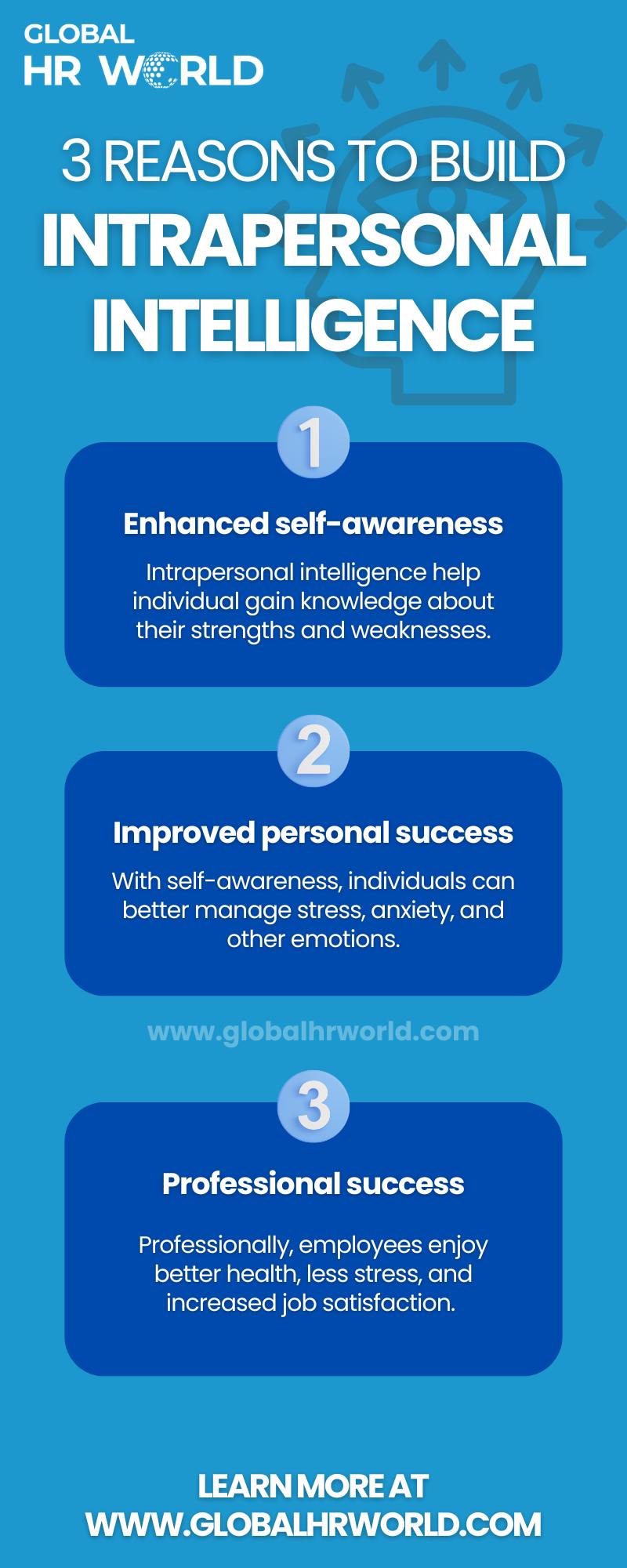Have you ever heard of intrapersonal intelligence? Is it different from interpersonal intelligence? Let’s see!
What is intrapersonal intelligence?
Intrapersonal intelligence is the capability to understand oneself and one’s thoughts and feelings. Howard Gardner introduced the concept of intrapersonal intelligence as part of his theory on multiple intelligences. Gardner, in his theory, stated that intelligence is made up of many different types of cognitive abilities. One of them is intrapersonal. It is knowing what’s within. By understanding one’s own self, one can use this knowledge in planning and directing one’s life. This includes understanding our emotions, core values, belief systems, and motivation behind our behaviors so that we can live in alignment with this understanding.
Characteristics of intrapersonal intelligence
People who have strong intrapersonal intelligence tend to be:
- Self-aware
- Introspective
- Emotionally intelligent
- Self-knowledgeable
- Intuitive
- Thoughtful
- Philosophical
- Independent
- Self-reflective
Why do we need intrapersonal intelligence?
All the abovementioned skills have something to do with the ability to self-guide. People with strong self-guidance abilities often have an easier time:
- managing their behavior and emotions
- weathering difficulties
- working toward their goals in spite of distractions
Don’t worry! We got you. It is absolutely possible to cultivate intrapersonal intelligence. The tips below can help.
Intrapersonal vs. interpersonal intelligence
Intrapersonal intelligence and interpersonal intelligence are sometimes confused with one another. Though both of them are identified by Howard Gardner himself, they do have a few dissimilarities.
| Intrapersonal intelligence | Interpersonal intelligence |
| Something happening within the individual mind or self | Something that involves relations with others |
| Skills include self-awareness, emotional intelligence, self-motivation | Skills include empathy, social awareness, teamwork, communication skills |
| It is important for self-guidance and personal growth | It is crucial for understanding other human nature |
How can you develop intrapersonal intelligence in your employees?
Developing intrapersonal intelligence in employees involves fostering self-awareness and personal growth in them. You need a few strategies for that. Here are several strategies to achieve this:
1 – You can use self-assessment tools
Self-assessment tools offer a method for gathering information about yourself to decide more easily on a career that fits. Important elements of self-assessment tests include values, interests, personality, and aptitudes. There are several self-assessment tools available online. You can use personality tests, like Myers-Briggs, DISC, Keirsey Temperament Sorter, Holland Code, etc., and even an emotional intelligence assessment.
This helps employees understand their strengths and weaknesses. This self-awareness clears their head. What’s more you can do? What about suggesting to start a morning routine with a quick journal entry? Regular journaling, mindfulness exercises, and meditation help employees regulate their own thoughts, feelings, and actions.
2 – You can create personal development plans for your employees
Start asking questions to your employees, like, how often do you set goals for yourself? Have you attended any training? Based on the answers, work with employees to create individualized development plans that focus on personal and professional goals. According to that, offer workshops on emotional intelligence, stress management, and self-regulation techniques.
You can provide training on goal setting, time management, and decision-making skills. Whether you have been in a steady job for several years, it never hurts to refresh your skills. Moreover, taking professional development and other training shows you are invested in growing as a professional. These are great impressions to make! But don’t stop there. You should regularly review and update these development plans as well.
3 – You can offer mentoring sessions
Do you have a mentor, or have you mentored someone before? If you have, you might know the amount of inspiration it fills us with. A mentor becomes a role model for us. A role model is someone who has the specific skills that people strive to achieve.
They can inspire others to perform better work or develop particular skills. Mentoring programs provide personalized guidance and feedback. Mentors should focus on helping mentees develop self-awareness and personal growth strategies. Leaders and managers should model intrapersonal intelligence where they can demonstrate self-awareness, emotional regulation, and how can you continuously self-improve yourself. They can also share their personal experiences and learning moments to inspire employees.
4 – You can conduct wellness programs
Employee wellness programs offer benefits for employers and employees. Physical and mental wellness programs promote the overall well-being of an employee, as a healthy body often supports a healthy mind. They create a healthier, more engaged workforce and drive long-term positive health changes. Employees enjoy a) better health, b) less stress, and c) increased job satisfaction.
Employers also see gains in productivity and potentially reduced spending on healthcare costs. But what can you do to promote physical and mental wellness? As a part of the wellness program, you can include activities such as fitness classes, mental health resources, and stress reduction workshops. What else? You can offer resources that promote a balanced lifestyle. These will help your employees to stay active.
5 – Last but not least, you should encourage employee autonomy
Employee autonomy refers to giving your workers freedom to take control of their work. Depending on the aspects of the job, the extent of autonomy can also vary. Encouraging employee autonomy is more than just ditching micromanagement. Examples of autonomy can look like,
- letting employees choose their hours,
- giving them decision-making power,
- allowing them to create processes for their tasks and
- offering flexibility in work deadlines.
This fosters a culture of openness, trust, and psychological safety where employees feel comfortable exploring their thoughts and emotions. What else? You can encourage open communication and provide support for employees facing personal or professional challenges. This helps them develop self-confidence and self-regulation.
What would you do to start this journey of developing intrapersonal intelligence? Comment us below.
Infographic

Knowledge Check!
Frequently Asked Questions (FAQs)
What is intrapersonal intelligence?
Intrapersonal intelligence is the capability to understand oneself and one’s thoughts and feelings.
What is an example of intrapersonal intelligence?
An example of interpersonal intelligence can be self-awareness.
What is a sign of having intrapersonal intelligence?
People with strong intrapersonal intelligence are inclined to engage in self-evaluation more often.



